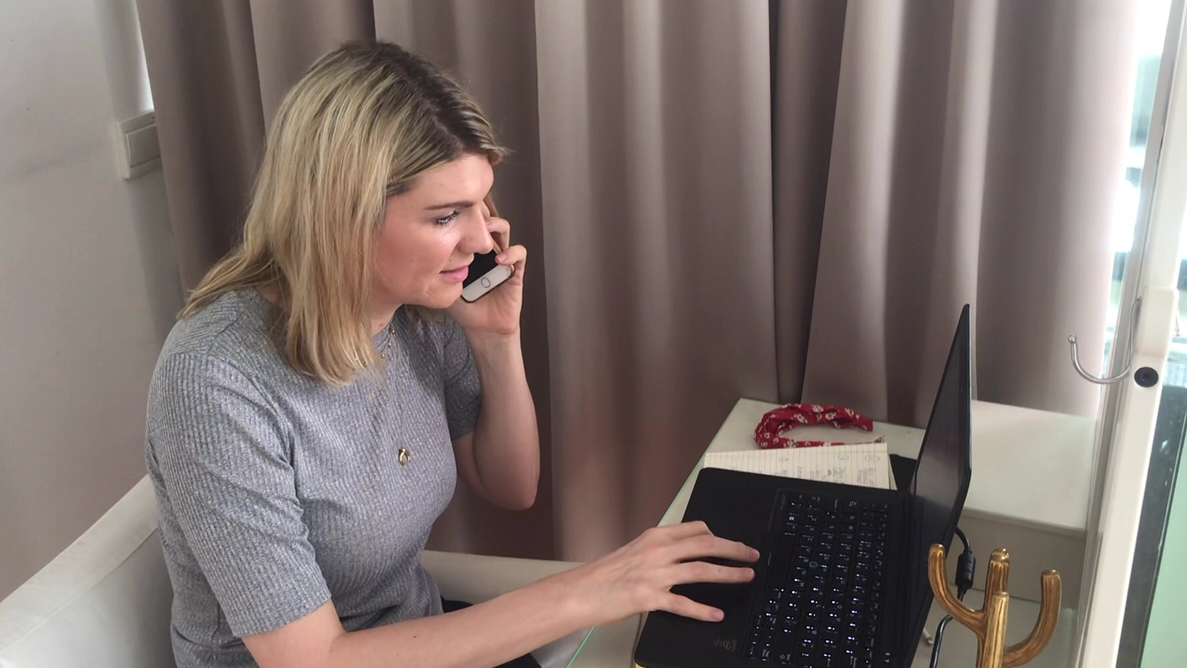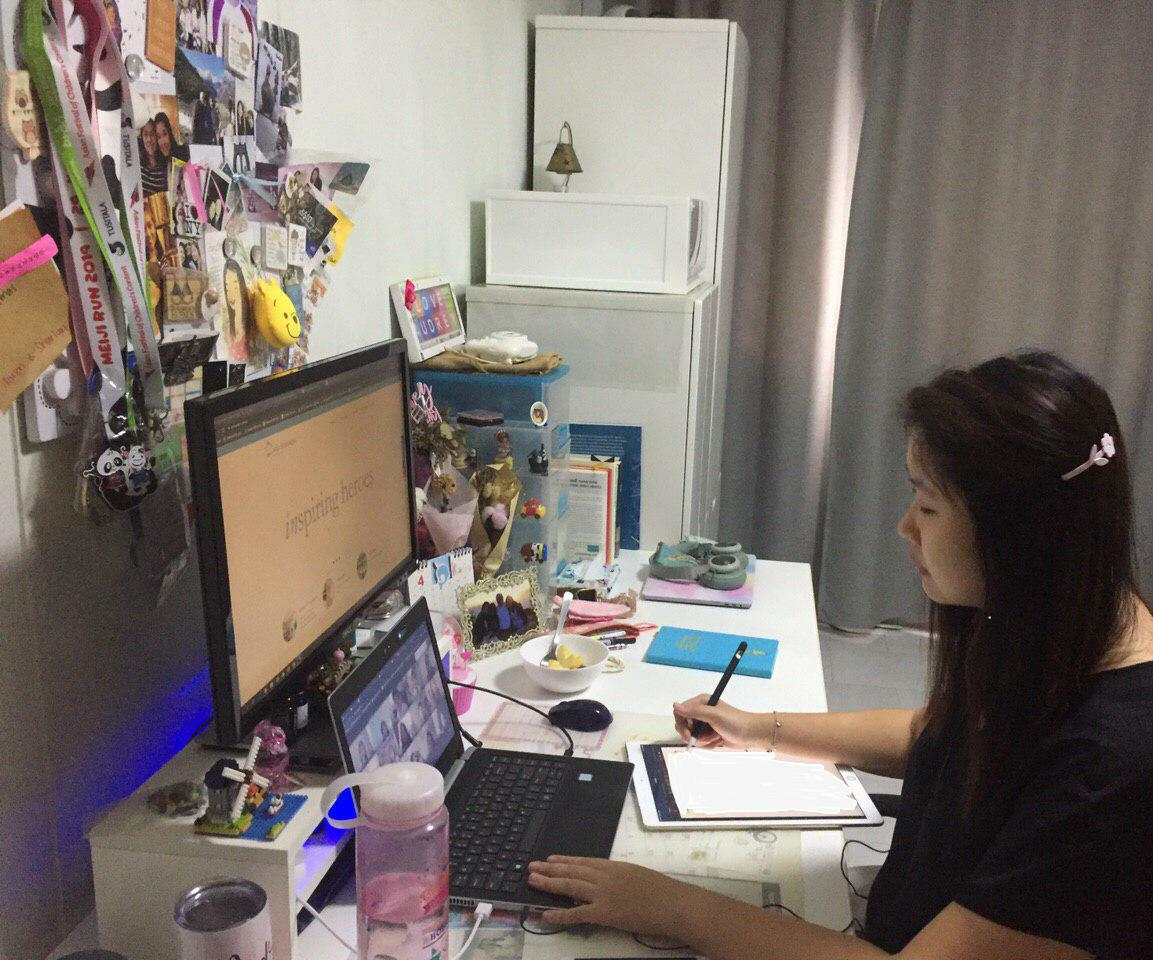
Till a few months ago, remote working was still an alien concept to most organizations and businesses, primarily limited to tech companies and startups. However, the COVID-19 outbreak and the restrictions imposed to curb its spread, have pushed companies to transition the way they work.
Though it's still early days, some companies who were initially apprehensive, now seem to be coming around to the idea of allowing their employees to work from home.
Companies are also realizing that remote working can help curb on travel expenses.
Technology recruitment consultant, Laura Taylor, observed that "companies and people in general are becoming more mindful of excessive spending habits. They do realize that people can work from home and be productive, so I do think it will change the way that we work."
Laura, who is based out of Singapore, has been working from home for almost seven weeks. This is in complete contrast to pre-COVID-19 days, where she spent most of her day, going from one face-to-face meeting to another.
"I was out either meeting clients or candidates most of the day. Usually around five to six meetings a day. My team is predominantly based in Hong Kong, so I was required to travel to Hong Kong quite frequently and also my market is across ASEAN, so my role was supposed to be quite a lot of travel."
Laura has transitioned from offline to online quite successfully, carrying out her work through various video conferencing tools.
"I have become very accustomed to using video conferencing. Interestingly, you can speak to more people because people are home, they are more willing to take calls, and take time out of their day. I am still very frequently meeting people, but it is just online."
She went on to add: "Our clients and candidates are also adapting to interviews online. We have had many processes from beginning to end now purely through VC (video conferencing). The initial technical screening, HR interviews, everything done through VC."

Cluster Principal of Star Learners, Audrey, conducts team meetings through video conferencing. Chen Audrey/CGTN
Cluster Principal of Star Learners, Audrey, conducts team meetings through video conferencing. Chen Audrey/CGTN
Chen Yiwen Audrey is the Cluster Principal of the Singapore-based childcare chain, Star Learners.
"My main job is to ensure that everything on the ground is up to standard. I move around from center to center frequently for face-to-face meetings with the Principals and do my walkabouts to review the centers under my purview. All in all, I can say that a typical work day for me involves a large chunk of interaction with people."
Along with habit changes, there is a criticality to upskill. The staff at Star learners has been working hard to restructure their study material and create videos for students to continue their lessons at home. Internal staff meetings and interactions with parents have also gone online.
"With the restrictions in place, I can no longer go about my task in the usual way, instead I have to rely heavily on technology. I conduct daily check-ins with the centers, with my team and plan for their professional development. This is becoming a new normal and I find that this has made me accept and adapt to changes quickly," explained Audrey.
"Currently what we do is a check in with the parents and children on how they are coping with the home-based learning. When we shift the focus to the students, sometimes they get a little bit shy. They have to wait for their parents to prompt them and encourage them to interact with the teachers online. For the children it is a new experience, so they will take a little more time to adapt."
To help the children cope, Star Learners has started "bi-monthly hangout sessions for teachers to engage with their class and for the children to engage with their classmates virtually."

Star learners conducting bi-monthly online sessions for teachers to engage with their class./CGTN
Star learners conducting bi-monthly online sessions for teachers to engage with their class./CGTN
Lee Junxian has been a salesperson for the electronics store Audio House for two years now. His primary role and forte was to engage with customers, understand their needs, show them the products, and explain the product specifications.
"I manage customers at the showroom. If they are coming to look for a TV and they want to know about specifications, I will be the one to talk to them about different products and different kinds of models."
However, in light of the restrictions imposed in Singapore, Junxian and his teammates now attend to customers through audio and video calls and text messages.
"Audio house introduced a new program, called online concierge service. Our entire team handles customers on a one-to-one basis through calls. This allows us to serve new customers, who are unfamiliar with our e-commerce website and we can guide them step by step, how to buy, how to view all different products," he said.
However, convincing customers to buy online is not as easy as it sounds.
"Customers still prefer to come down to the showroom to see the physical product instead of directly buying through online. For now, customers are not able to see the physical product. So, it becomes harder to ask them to buy," explained Junxian.
In an attempt to encourage customers to buy online, Audio House conducted an online live bidding session. A large variety of electronic goods were auctioned, with bidding starting at one Singapore dollar.
Junxian believes that such offers would help bring the customers back to the store, when things go back to normal.
Can we go back to the way things were?
However, most people don't share Junxian enthusiasm. They are skeptical about what "normal" will look like in the coming months.
In fact, an ongoing survey conducted in Singapore has found that 90 percent of employees wish to continue working from home in some capacity after the circuit breaker or restrictions end.
Reports have also emerged that several companies are contemplating getting a percentage of their employees to continue working remotely for some time.
Laura Taylor's observation of the recruitment market seems to be in tune with those reports.
"What we are seeing is still a very high demand in niche technology skill sets as companies are being forced to digitize or forced to allow staff to work at home, they have to invest in technology to make these things happen."